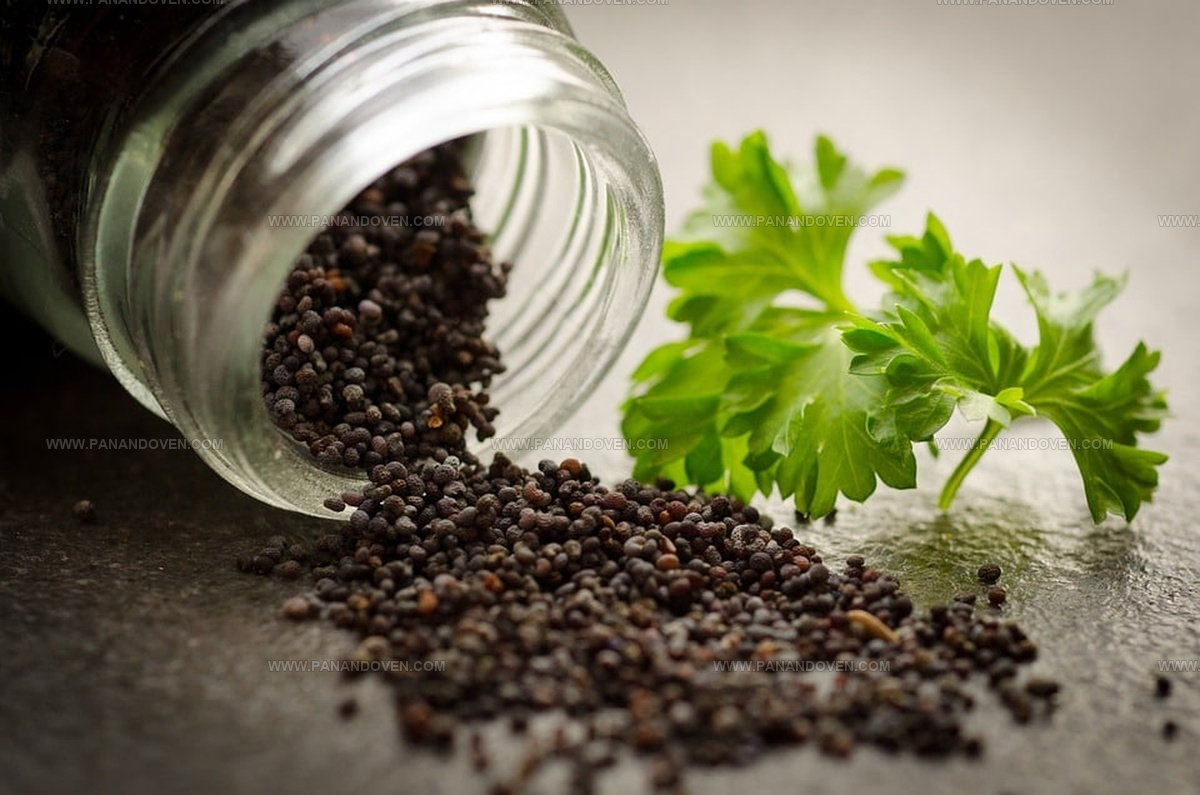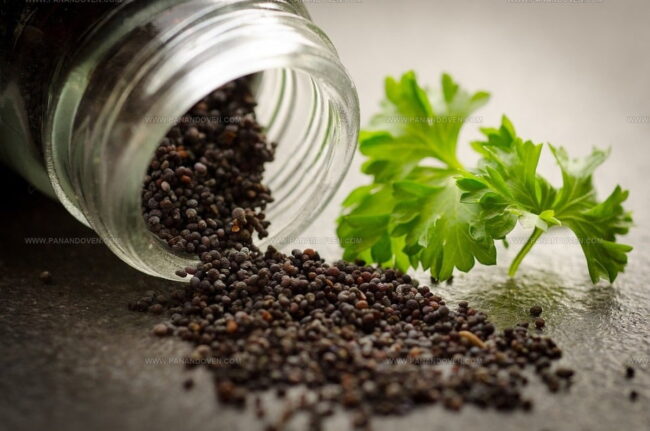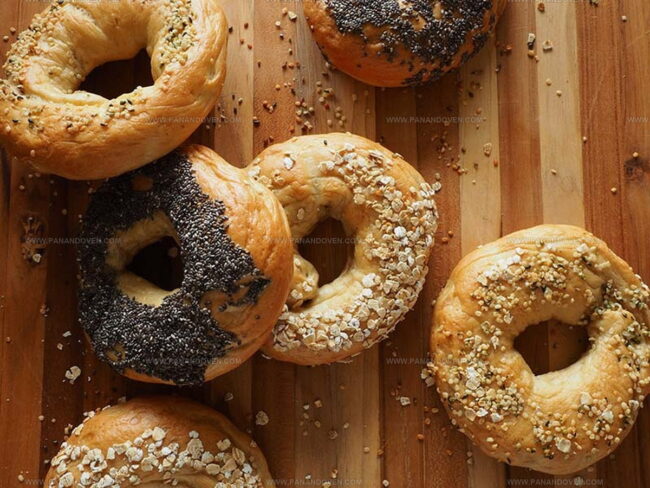Poppy Seeds Taste Like Little Nutty Bursts of Earthy Goodness
Poppy seeds might seem like a tiny culinary mystery tucked away in bakeries and kitchens worldwide.
Minuscule dark specks hold more intrigue than their unassuming appearance suggests.
Some people sprinkle them casually onto dishes, while others wonder about their unique flavor profile.
Culinary enthusiasts often debate the subtle nuances hidden within these small seeds.
Their presence in global cuisines ranges from sweet pastries to savory breads, hinting at a complex taste experience.
The seeds' potential goes far beyond simple decoration or texture.
Your curiosity about poppy seeds' flavor will be richly rewarded as you uncover their delightful gastronomic secrets in the following exploration.
What Are Poppy Seeds?
Seeds from opium poppy plants have a long history of human use.
People across different cultures have collected these small kidney-shaped seeds from dried pods for generations.
Countries in Central Europe and South Asia legally grow and sell poppy seeds in stores.
Cooks use these seeds whole or ground up in many dishes like bread and pastries.
People also press the seeds to make poppy seed oil.
These seeds look blue and measure very small in size.
Taste of Poppy Seeds
Poppy seeds bring a gentle nuttiness with a hint of sweetness and woody undertones.
Small and delicate, these tiny seeds add something special to dishes mostly because of their unique texture.
When you munch on them, they create a nice crackly sensation that works wonderfully in soft breads and pastries.
Health Benefits of Poppy Seeds
Poppy seeds might look small, but they pack a serious health punch.
These tiny black seeds bring lots of good things to your body.
Packed with calcium and iron, they help keep bones strong and blood healthy.
People with diabetes or heart problems can especially benefit from adding them to meals.
Poppy seeds work well for fighting inflammation in your body.
Anyone curious about their special taste will want to learn more about these powerful little seeds!
Better Heart Health
Modern life takes a toll on health, with many suffering from different sicknesses because of poor diet and little movement.
Heart problems often result from this unhealthy approach to living.
Blocked blood vessels and high cholesterol create serious risks for cardiac health.
Medical treatments can help, but nutrition plays a key role in healing.
Small black seeds from poppy plants pack powerful health benefits.
Fiber found in these seeds works hard to clean up cholesterol levels in blood streams.
Good cholesterol increases while bad cholesterol drops when these seeds become part of regular meals.
Bonus benefits include blood purification through natural iron content, which boosts hemoglobin levels and supports overall wellness.
Helps With Digestion
Modern times showcase widespread consumption of junk food and fast food loaded with calories, sodium, and unhealthy fat while lacking essential nutrients.
Such substances negatively impact digestion and frequently result in uncomfortable bloating.
Poppy seeds contain significant amounts of insoluble fiber.
Regular intake of these small seeds helps prevent constipation by supporting smooth movement of food through digestive pathways and enhancing overall digestive health.
Beyond this benefit, poppy seeds also boost nutritional absorption from consumed meals.
Used For Better Sleep
Sleep brings comfort, yet many find countless temptations more exciting than resting through whole nights.
Sleeping problems have increased because of modern distractions and multiple challenging situations.
Struggling with rest?
Seeds packed with magnesium could help.
Magnesium works well in lowering stress hormone levels while supporting better sleep patterns.
Bedtime tea or milk-based paste works best for consuming these small seeds.
Users often experience improvements in sleep quality and metabolic functions after consistent use.
Makes Bones Stronger
Bone strength weakens with age, making it crucial to support skeletal health through smart nutrition.
Calcium plays a key role in keeping bones strong, and poppy seeds pack a powerful punch of this important mineral along with copper.
Additional nutrients in these tiny seeds work wonders for bone support.
Manganese within poppy seeds helps build protein collagen, which shields bones from potential damage and reduces joint stress.
Side Effects of Poppy Seeds
Poppy seeds are common in many dishes, but they can have side effects.
Read about possible reactions and precautions.
May Cause Allergies
Poppyseed allergy might happen, based on a past research report in medical journals.
Possible signs of a poppyseed allergy include:
Can Act Like Opioids
Poppy plants contain opium alkaloids like morphine, codeine, and thebaine, according to the Drug Enforcement Administration.
Cutting the pod releases a milky white fluid holding the opium content, not the seed itself.
Seeds without washing have more alkaloids on their surface compared to washed seeds typically used in baked goods and other processed foods.
Research published in Pain and Therapy during June 2019 suggests unwashed seeds made into tea can create an intoxicating effect and potentially cause dependency and withdrawal symptoms.
Extreme cases of consuming large amounts of unwashed poppy seeds have led to rare instances of death.
Most documented cases involved consuming substantial quantities of poppy seed tea, such as 2 liters daily.
Medical professionals recommend avoiding unwashed poppy seeds and poppy seed tea without professional guidance.
Washing and boiling unwashed poppy seeds can help reduce opium alkaloid levels, according to guidance from the US Food and Drug Administration.
May Give False Drug Test Results
Medical research shows small poppy seed amounts used in cooking typically remain safe, but could trigger unexpected drug screening results.
Drug testing agencies warn certain tests might detect morphine and codeine traces in urine samples within two days after consuming poppy seeds on baked goods like bagels or pastries.
Are Poppy Seeds Safe During Pregnancy?
Pregnant women might accidentally cause problems by eating poppy seeds.
Marcotte points out that consuming these tiny seeds could trigger a positive drug screening.
Small amounts of poppy seeds can create serious consequences during late pregnancy.
Results from such unexpected test outcomes might include:
Hospital staff keeping newborns for extended checks related to potential opiate exposure.
Medical teams would conduct detailed examinations of babies suspected of drug contact.
Social workers could become involved with family cases.
Child protective services would need notification as part of standard abuse investigation protocols.
Medical professionals would start standard procedures that create significant stress for parents experiencing this unexpected situation.
Marcotte recommends that pregnant women skip poppy seeds during final weeks before birth.
Her guidance helps prevent unnecessary medical complications and emotional strain for families facing unexpected drug screening results.
How to Store Poppy Seeds
Poppy seeds sit well inside sealed jars placed in cool, dark spaces for twelve months.
Their taste slowly fades during storage periods.
Seeds spoil quickly when near heat sources or bright light, so careful placement matters in kitchen storage spots.
Making poppy seeds taste better involves grinding them and warming them on medium temperature settings.
Kitchen cooks should then move ground seeds into shadowy storage spaces.
Refrigeration helps keep seeds from going bad.
Proper storage methods let poppy seed collections last between three and four years without trouble.
Culinary Uses Of Poppy Seeds Worldwide
Poppy seeds are tiny, flavorful seeds used in many global cuisines to add crunch, taste, and color:
No matter where they’re used, poppy seeds bring a gentle crunch and a nutty pop of flavor to all sorts of recipes.




Marcus Reed
Founder & Food Content Creator
Expertise
Single-recipe development, Seasonal and local ingredient utilization, Food photography and styling, Culinary writing and content creation
Education
Culinary Arts Certificate, Blue Ridge Community and Technical College, WV
Focus: Fundamentals of culinary techniques, emphasizing hands-on experience in small-scale kitchen settings.
Marcus’s story begins in Asheville, where good food and family kitchens shaped his earliest memories. After hands-on culinary training and a lot of trial (and a little error), he realized that real cooking isn’t about perfection, it’s about connection.
At Pan and Oven, Marcus crafts recipes that are easy to follow, packed with flavor, and built for real kitchens.